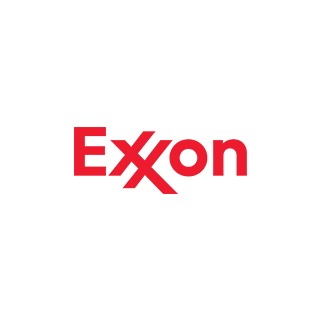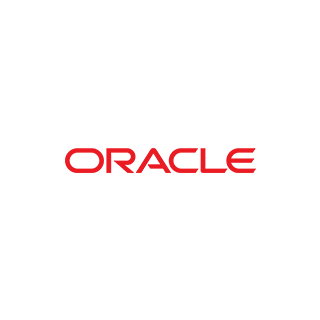Sustainable Development Sandbox
Sustainable development is development that meets the needs of the present without compromising the ability of future generations to meet their own needs
Brundtland Report, by the World Commission on Environment and Development (1987)
01
Procedure
In order to foster innovation and contribute positively to the public interest, the Hellenic Competition Commission (HCC) has created this protected environment that will encourage businesses to adopt innovative business ideas in favor of sustainable development. Businesses can apply to the HCC through the Sandbox for the evaluation and approval of their business proposal!
Application
Request / proposal for innovation
Interested parties submit their proposal in the sandbox following the regulations.
Evaluation
The proposal enters the sandbox and the evaluation begins
The proposal is evaluated by the Directorate-General for Competition, based on various evaluation criteria.
Implementation
Exit the sandbox and implementation of the proposal
Interested parties leave the evaluation stage and can implement the business proposal in the market.
In July 2021, the HCC launched a public consultation for a “sustainability sandbox, and in view of the positive comments received, we decided to put this new experimental approach in operation: the aim is for the industry (and in particular small and medium firms) to experiment with new business formats that aim to realize more quickly and efficiently sustainability goals, and to generally undertake initiatives that contribute significantly to the goals of sustainable development while not significantly impeding competition.
The importance of sustainability objectives is also recognized by Art. 37A of Greek (Competition) Law 3959/2011, as amended in January 2022, which provides the possibility for the adoption of a no-action enforcement letter in the presence of significant positive effects for sustainability and the public interest.
All these initiatives aim to organize HCC’s work so as to facilitate the Green transition of the Greek economy and to enhance the development of competitive markets.
In general, competition authorities should participate to these effort of re-orienting economic activity towards Green Growth, not only through their traditional enforcement activity, but also taking a more “responsive” approach to business initiatives: this emerging proactive role for competition authorities in addition to their competition law enforcement work, may give rise to the use of new more flexible legal tools, such as the Sandbox. Sandboxes create a supervised space for experimentation for the promotion of innovative business initiatives that also promote the public good.
Undoubtedly, the constitution of the sandbox does not aim to avoid the application of competition rules in the market, nor can it be used for anti-competitive practices that simply contain some reference or a low contribution to sustainable development without overcoming the damage to competition caused (e.g. “green-washing” practices). On the contrary, it makes it possible to fully evaluate practices from a competition perspective (even before the project gets implemented) while enhancing legal certainty and reducing regulatory risk for green investments, in line with the broader public interest goal for sustainable development.
We consider that this new initiative of the HCC will enhance competition compliance and will also enable the constitution of the new Green economy in Greece on solid competition-compatible foundations, thus ensuring the completion of the long-term competition and sustainability goals, for the benefit of consumers and citizens.
Ioannis Lianos
President of the Hellenic Competition Commisison
Example 1: Two domestic washing machine manufacturers A and B are applying to the sandbox with the project to produce a new technological category of “green washing machines” which are less energy consuming. The request is made since, in order to achieve their aim, the companies consider that they should stop the production of washing machines that do not follow these green standards in order to reduce the risk of parasitism/free riding in their joint effort for the green transformation of their production. There are various (old and new technology) imports of washing machines on the market. The companies also agree to share customers for their new washing machines (A will sell to household customers / B will sell to professional customers) for reasons of better product promotion.
- The main proposal may be positively evaluated (despite the limitation/reduction of production) as it ensures the provision of a new and innovative generation of washing machines that promote sustainable development due to energy or water use limitations. However, the additional vertical constraint (customer sharing) may be negatively assessed at first glance as incompatible / disproportionate to its contribution to sustainable development.
Example 4: All dairy industries together with packaging suppliers, have set a general goal of promoting the use of recycled packaging materials (cardboard and plastic) to a significant proportion in the production of milk and juice packaging. Under the agreement the largest percentage of the materials from which each package will be produced will constitute recycled materials (e.g., 75%). The packaging suppliers also agreed with the dairy industries to exclusively produce packages that meet the agreed standards, while the dairy industries agreed with each other to use only such packages from now on, without however limiting these purchases to specific undertakings. However, the parties acknowledge that the new recycling technology is expected to bring about a relative increase in the price of packaging materials for some period.
- The evaluation within the sandbox may positively take into account that such – systemic – cooperation can bring about significant positive results to sustainable development. Although acceptance of this proposal may initially increase production costs due to the development of new technology; however, packaging and costs are a small part of the product’s total cost (which is also expected to fall in the future). With this investment the dynamic efficiency of these companies will be enhanced, for the benefit of consumers.
- The practice has significant anti-competitive implications (product-tying agreement, the tying itself, and possibly the discount reward scheme). On the other hand, the practice can bring about significant changes in the market, enhance the after-use life cycle of products (circular economy) and bring positive results in the fight against environmental pollution from plastics. The evaluation will take into account the relevant cost-benefit analyses both from the point of view of competition and from the point of view of sustainable development. Probably, a strict time limit for the implementation of the proposal (in order to consolidate the technologically advanced recycling service but also to ensure the possibility of third parties entering to the market and open the ecosystem) will provide a balanced perspective in the sandbox.
Example 6: The 6 largest supermarkets decide to create a “green standard” (standard-setting) for food producers who will take appropriate measures to handle and avoid food waste. According to the standard, 75% of this waste should be returned in the production process in any form.
- According to the analysis above (see Example 5), the imposition of such standards can be considered to enhance sustainable development and the circular economy. Hence, the practice may be evaluated positively following some further assessment.
Example 3: A group of small and medium-sized enterprises creates a cluster with which they aim to share some production assets (e.g., new special machines) with a smaller environmental footprint.
- This agreement may not be reviewed from the point of view of Article 101 TFEU, which does not apply to small and medium-sized enterprises with a turnover and market share that is below specific limits. However, it may be examined from the point of view of article 1 of Law 3959/2011. The production sharing agreement does not appear to have a significant impact on competition due to the promotion of sustainable development technologies by parties that would not otherwise have this possibility.
Example 5: A manufacturers association considers that it should aim to use mostly materials (e.g., 50%) produced from recyclable materials and for this purpose sets various standards (qualitative and quantitative (standard-setting)) for the use of similar materials in production process involving all its members.
- The imposition of such standards can be seen as enhancing sustainable development and strengthening the circular economy. Although the imposition of standards and interference in the production process has potential to contain anti-competitive elements and impose restrictions to competition (production, commercial freedom), this practice may nevertheless be evaluated positively within the sandbox but following the weighing of the possible negative effects on competition with positive effects to competition and sustainable development. It may also lead to the imposition of an open ecosystem condition.
Learn more about the responsibilities, work and initiatives of the Hellenic Competition Commission at the website www.epant.gr
We are the decisive factor behind your success
Lorem ipsum dolor sit amet, consectetur adipisicing elit, sed do eiusmod tempor incididunt ut labore et dolore magna aliqua. Ut enim ad minim veniam, quis nostrud exercitation ullamco laboris nisi ut aliquip ex ea commodo consequat. Duis aute irure dolor in reprehenderit in voluptate velit esse cillum dolore eu fugiat nulla pariatur. Excepteur sint occaecat cupidatat non proident, sunt in culpa qui officia deserunt mollit anim id est laborum.
Ut enim ad minim veniam, quis nostrud exercitation ullamco laboris nisi ut aliquip ex ea commodo consequat. Duis aute irure dolor in reprehenderit in voluptate velit esse cillum dolore eu fugiat nulla pariatur.






